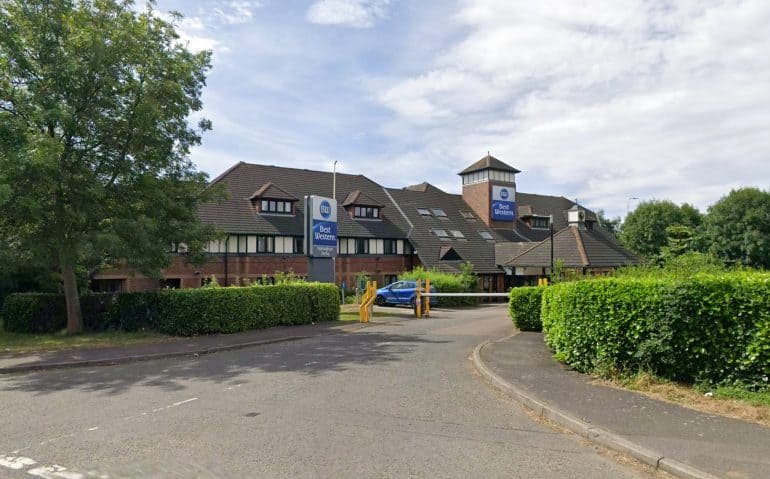-
 play_arrow
play_arrow
Erewash Sound Love Music - Love Erewash
-
 play_arrow
play_arrow
Writing East Midlands talks about their pivotal role in supporting creatives, in professional & community settings, in the East Midlands. They also discuss their local role within the national initiative "Beyond the Spectrum". Erewash Sound
Despite resounding success for Reform UK across Derbyshire, surging to two-thirds control of the county council, the question remains: What are they going to do and how?
These are the same questions now being debated by the successful 42 county councillors elected in a landslide across all parts of the county, in a series of local groups only formalised in the last couple of months.
Reform councillors said at the election counts that the votes for their party were as a result of frustration at the Conservatives and Labour being perceived to have failed to fulfill promises – so the pressure will be on Reform to not make the same mistake.
However, there was no Derbyshire election manifesto or key Derbyshire-specific pledges put out by the local branches.
Instead, there are some general pitches from the national party and some detail from a number of the successful candidates, but much of it is associated with national Government responsibilities or the duties of borough and district councils – not the county.
A Reform leaflet sent to most homes details three key pledges:
- Freeze immigration and stop the boats – neither of which the county council has any control over
- Scrap net zero to cut your energy bills. The county council could curb its efforts to meet net zero aims and stop funding in this area but the county council has no say over household energy bills. It can provide grant funding for various areas of work such as homes hit by flooding. The council will also have a number of Government-mandate obligations around net-zero and potential grant funding for projects which hit this aim alongside other priorities.
- Reduce waste and cut your taxes. The county council only has control of its portion (around 75 per cent) of your annual council tax bill and no other taxes. The county council could choose to reduce this but this would mean the council gives itself less money to run services. It can offer council tax exemptions. The ‘reduce waste’ aim is Nigel Farage’s bid to carry out additional audits – in addition to those already independently mandated – on the county council’s finances in order to find wasteful spending and streamline services. He said the incoming council would cancel contracts it opposes.
In lieu of a manifesto, the Reform national team said the Derbyshire councillors would “lower council tax”, “fix potholes” and “invest in services”. It said a “British-style DOGE” (department of Government efficiency) would be set up.
Cllr Sam Redfern, successful Reform candidate in the Hilton division in South Derbyshire, said in a letter to residents that his priorities include “fixing all potholes” and “social housing for local people”.
Social housing is not within the duties of the county council but is within the responsibilities of the district council, which can provide social housing itself and create agreements for homebuilders to provide them as part of new schemes.
He details in a further leaflet that the county council “wastes money” on its managing director’s salary (which is set independently), on consultants for strategic children’s services officers, on the £150 million Sinfin incinerator project, on anti-smoking campaigns, on free vape starter kits and on equality officials. These could be areas the county council now looks to reduce.
The Sinfin incinerator project is a joint initiative the county council shares with Derby City Council, with plans to hire a company to run it. Stepping out of this project would appear to be within the county council’s gift – but may cost it and/or lead to a legal challenge from the city.
Cllr Martin Bromley, successful Reform candidate in the Swadlincote East division in South Derbyshire, issued a post on Facebook saying a vote for Reform would be a vote to “say no to increased council tax”.
He also listed it would be a vote to saying “no” to reduced food security, freezing pensioners, disrespecting veterans and to “Labour landgrabs”.
The county council has no purview over food security, winter fuel payments, disrespecting veterans or landgrabs.
Food security can be linked to national government or district/borough councils rejecting the repurposing of farming land.
The county council does run a number of care homes which it is responsible for heating and it can supply grants to homeowners but it does not control the winter fuel allowance.
It signs an armed forces charter and does have links to rehab and drinks and drugs campaigns but has no direct responsibility for veterans.
“Landgrabs” are linked to housing or business developers and is a term often linked to development blueprints – Local Plans – drawn up by district and borough councils and mandated by central Government.
The county council does control the use of land for mineral quarrying and mining through its minerals Local Plan, but that is the extent of its control over earmarking land for development.
Nigel Farage said on his visit to Derbyshire that county council staff will be told to work from the office or lose their jobs.
He said he did not support any of the local government reorganisation plans on the table for Derbyshire, with a final submission to Government – which has the final say – due in November. Mr Farage said this was due to a lack of public support.
This could leave the only bid to Government being the joint submission from the districts, boroughs and city council.
During the same visit, Tony Wilson, now successful Reform candidate for Ripley East, said the party would reverse the decision to sell the Ada Belfield care home in Belper, following a decision from the former Conservative administration to pass on the £10 million facility.
He said he would oppose plans for solar farms near Denby along with the National Grid’s pylon scheme from Chesterfield to Willington. The council is a consultee on both of these applications but would not have the final say on whether they go ahead or not.
A previous move started by the Conservatives was to protect part of Amber Valley by registering it as an area of outstanding national beauty – but this could (if successful) take years.
During the Farage visit, now successful candidate for Melbourne & Woodville, Charlotte Hill, an engineer for National Highways, said quality assurance on pothole repairs would be improved to ensure patch-ups are being carried out correctly and will not need re-repairs.
The national party has said new councillors will not participate in climate change or diversity and equality training.

Written by: Erewash Sound
Similar posts
Sponsors
ON AIR
SEARCH
CATEGORIES
RECENT POSTS

Drug and alcohol dependency support to be given a funding boost

Broken planning system must be fixed says Chamber as it backs report calling for overhaul

Rolls-Royce hails success of Westminster nuclear showcase

‘Sticking plaster’ support plan for pubs neglects other sectors says Chamber

Are you a member of the Ockbrook School Alumni?
103.5 & 96.8 FM
LOVE MUSIC
LOVE EREWASH
Office: 0115 888 0968
Studio: 0115 930 3450
Erewash Sound, The Media Centre, 37 Vernon Street, Ilkeston, DE7 8PD
© Copyright 2026 Erewash Sound CIC. All Rights Reserved. Company Number 6658171.






